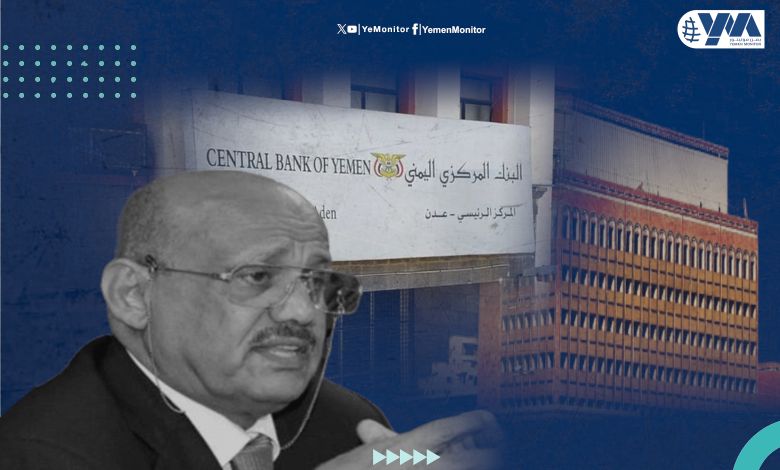Yemen’s Presidential Council Rejects Central Bank Governor’s Resignation

YEMEN MONITOR/NEWS ROOM
The Yemeni Presidential Council has unanimously rejected the resignation of Central Bank Governor Ahmed Ghaleb al-Ma’baqi, according to the official Saba news agency.
The Presidential Council affirmed its support for al-Ma’baqi and urged him to continue his efforts to implement comprehensive banking reforms.
Al-Ma’baqi had submitted his resignation earlier this week after the government reversed a number of his recent decisions, including the suspension of the licenses of six banks operating in the Houthi-controlled areas.
The government’s decision to reverse the sanctions was part of a de-escalation agreement with the Houthis sponsored by the United Nations.
In his resignation letter, al-Ma’baqi cited the challenges facing the Central Bank, including the Houthis’ control of ports and oil tankers, the ban on exports, and the blockade on gas shipments to Houthi-controlled areas.
He said that these factors had led to a large deficit in the state budget.
Al-Ma’baqi expressed his understanding of the Presidential Council’s decision to reverse the sanctions, but said that he believed he could no longer effectively carry out his duties as governor.
The Presidential Council’s rejection of al-Ma’baqi’s resignation is a sign of its support for the Central Bank governor and his reform agenda. It remains to be seen whether al-Ma’baqi will be able to overcome the challenges facing the bank and implement his reforms.
Earlier, the Yemeni government had announced reducing tensions with the Houthis and revoking its latest decisions against six banks under Houthi control.
The government considered its approval as a step towards alleviating the suffering of the Yemeni people, expressing hope that the announced agreement would lead to creating favorable conditions for a constructive dialogue to end all Houthi destructive practices against the banking sector, economy, and national currency, and fulfill commitments outlined in the roadmap, including resuming oil exports.

